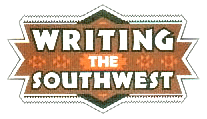
 Like Edward Abbey, John Nichols
has become identified with
the Southwest and with a style of writing at once highly polemical and
eminently readable. His classic novel, The Milagro Beanfield War,
brought the complex and highly charged social relations of New Mexico
to
the attention of the world; yet, like Barbara
Kingsolver and Denise Chavez, even his
most
passionate political works are filled with generous doses of humor and
compassion. John Nichols has grown from an irrepressible prep-school
graduate to a Southwestern legend and a symbol for Hispanic-Anglo
cultural
crossings.
Like Edward Abbey, John Nichols
has become identified with
the Southwest and with a style of writing at once highly polemical and
eminently readable. His classic novel, The Milagro Beanfield War,
brought the complex and highly charged social relations of New Mexico
to
the attention of the world; yet, like Barbara
Kingsolver and Denise Chavez, even his
most
passionate political works are filled with generous doses of humor and
compassion. John Nichols has grown from an irrepressible prep-school
graduate to a Southwestern legend and a symbol for Hispanic-Anglo
cultural
crossings.
Nichols brings his readers face-to-face with the more unpleasant aspects of rapid development in a largely rural region. Nichols has been called a modern-day Steinbeck, and, like Terry McMillan and Arizona writer Alberto Rios, his characters inhabit the racial, cultural, and class borderlands that divide and define the American Southwest.
"I've always believed, if you're involved even in a very small struggle--in some sort of infinity in a grain of sand--in your local neighborhood, that every action has universal implications. I believe that if I struggle for the rights of an acequia in Taos, New Mexico, that the ripple effect [will spread] from that tiny struggle."
John Nichols